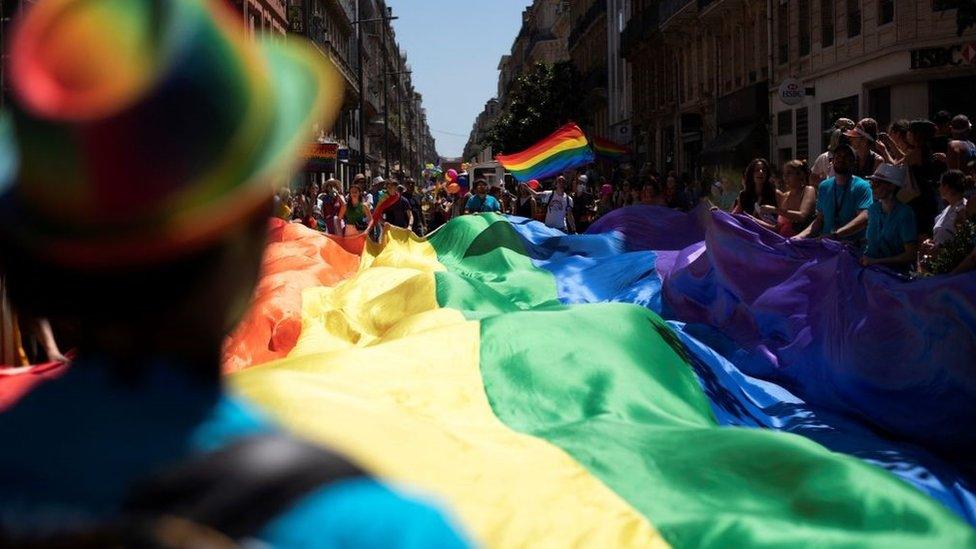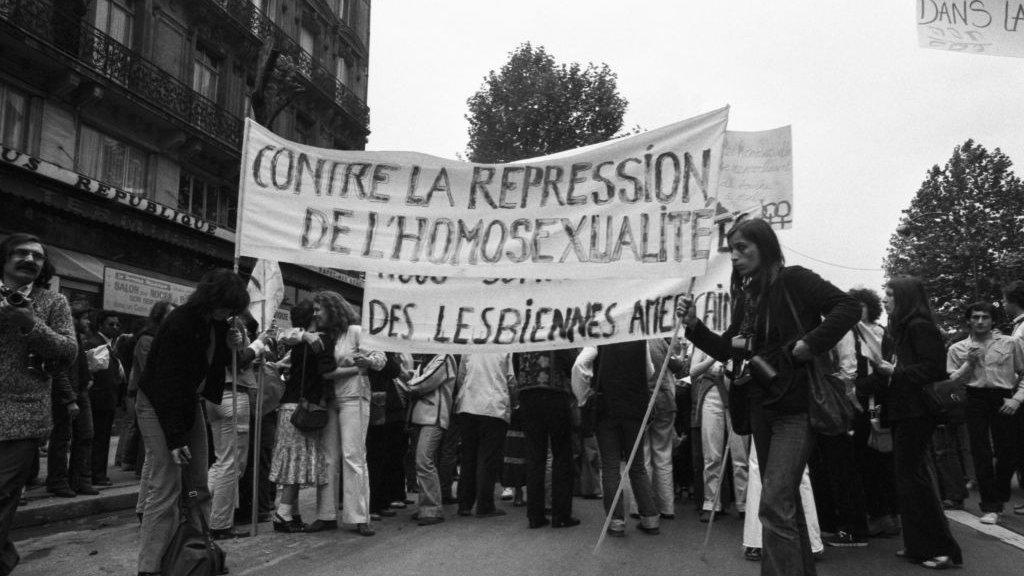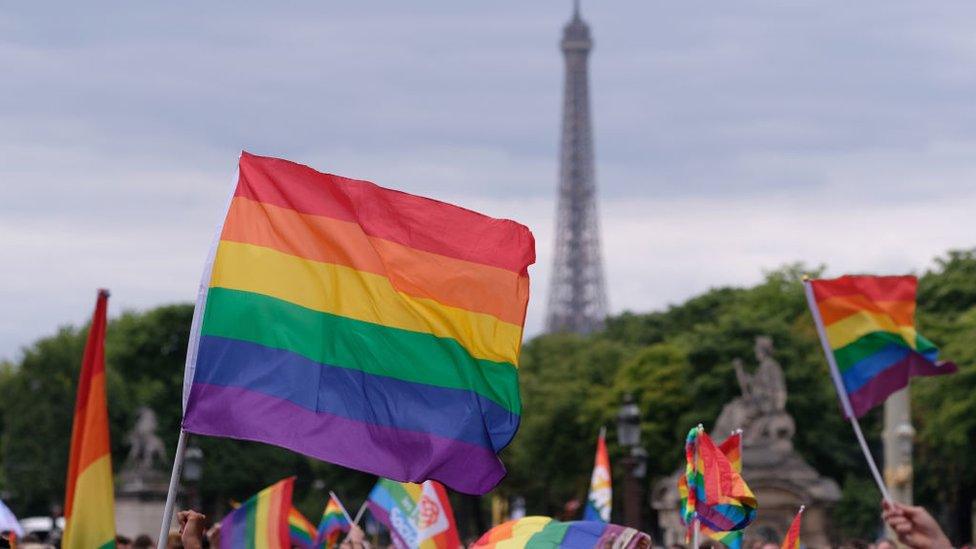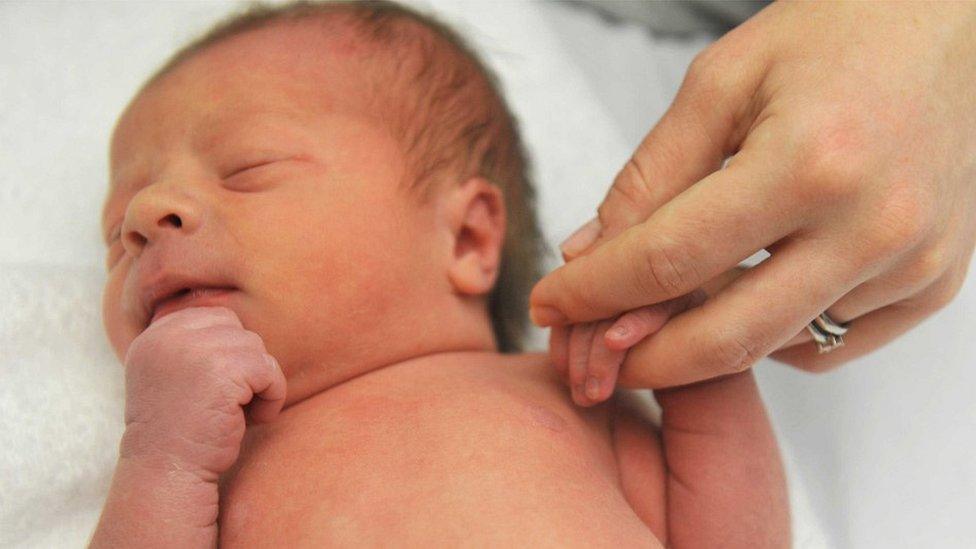France MPs back compensating victims of anti-gay law
- Published

France's lower house has passed a bill which will provide recognition and compensation for people convicted of homosexuality between 1942 and 1982.
The anti-gay law was originally introduced by the Vichy government during World War Two, when France was occupied by Nazi Germany.
Before then, homosexuality had been legal since 1791.
The new bill proposes to reimburse people who were fined for homosexual crimes.
It will also compensate anyone imprisoned for being gay.
The lower house of parliament unanimously approved the bill overnight, but it must now be examined by the Senate.
"Sorry, sorry to the people, the homosexual people of France who for 40 years suffered this totally unfair repression," Justice Minister Eric Dupond-Moretti told the National Assembly.
The anti-gay law remained in place after the end of World War Two.
An estimated 10,000 people - mostly gay men - were convicted between 1942 and 1982.
Many of those convicted are now dead or very old, meaning few are likely to come forward for any reparations.
Socialist lawmaker Herve Saulignac estimates that 200 to 400 people could be eligible for compensation.
Michel Chomarat, 75, was arrested during a raid on a Paris gay bar in 1977 and convicted under the law. He told the AFP news agency that he was "very moved" by the news.
"I've been fighting for almost 50 years because I never accepted being arrested and sentenced," he said.
- Published22 November 2023

- Published26 January 2022

- Published29 June 2021
